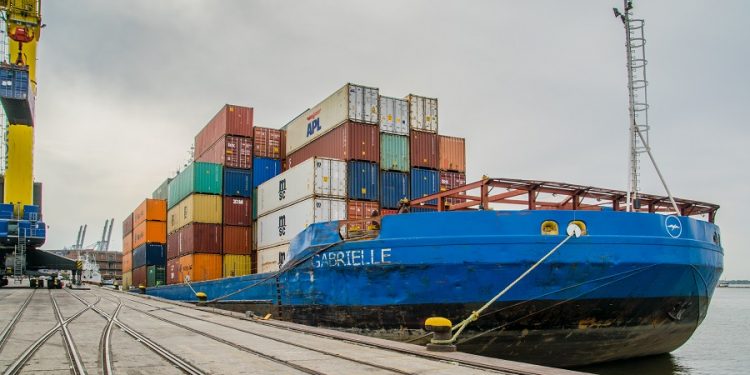Word Bank urges Africa to expand and diversify international trade to reduce poverty
The World Bank has urged African countries to expand and diversify their participation in international trade and global value chain to reduce poverty on a large scale and transform their economies.
The World Bank further asserts that the continent must go beyond the usual trading in raw materials by linking its production and trade to the global economy in order to take advantage of the unlimited demand and innovation along the supply chain.
Also, the continent will require comprehensive and dynamic efforts that will bolster its export market access as well as diversify its market to new regions and new products while strengthening regional trade.
The World Bank made this known in a book launched on Thursday, February 10, 2022 in Accra.
The book titled ‘Africa in the New Trade Environment: Market Access in Troubled Times’, points out that unilateral trade preferences have the potential to promote economic transformation through exports and calls for evaluating and re-engineering trade with traditional partners.
The book notes that, unilateral trade preferences have the potential to promote economic transformation through exports and calls for evaluating and re-engineering trade with traditional partners. Utilization rates of many African countries for the existing trade preferences such as African growth and opportunity act (AGOA) and everything buy arms (EBA] are systematically low. Evidence on AGOA shows that natural resources, mainly oil account for the bulk of African exports.
Read: Europe’s consumers are sitting on 1 trillion Euros in pandemic savings
“There is a need to integrate unilateral trade preferences with other efforts to deepen trade and investment between Sub-Saharan African (SSA) countries and the OECD countries, mainly the US and the EU,” the book emphasized.
This includes integrating preferences with foreign aid policy instrument to address structural challenges limiting export capacity. Recent initiatives such as compact with Africa [CwA] with a strong focus on improving the business environment, building infrastructure and promoting effective regulations and institution appear to be in line with this comprehensive approach.
According to World Bank Vice President in charge of Western and Central Africa, Ousmane Dyagana, “the global economy is a source of growth that African economies cannot afford to ignore. While African export of goods and services have seen their fastest growth in the past decade, the volumes remain low at just 3% of global trade. The time is ripe for policy makers to expand their thinking beyond traditional approaches and traditional market if they want to play an active role in international trade in the 21 century.”
The book noted that the rapid growing middle class and demand from East Asia accompanied by rising relative wages, along with shifting structure of global value chains, offers new market opportunities for sub Saharan African countries to strategically diversify trade with Asia.
Over the past decades, trade relationships between sub Saharan Africa and Asia have expanded, and for some SSA countries, their key trading partners are increasingly becoming China, India and Indonesia, replacing the EU and US especially after 2010.
Additionally, the World Bank Vice President for Eastern and Southern Africa, Hafez Ghanem, pointed out that “deepening regional integration to scale up supply capacity and build regional value chains is essential to the continent’s economic transformation. The establishment of African continental free trade area [AfCFTA] present more opportunities to boost Intra-African trade, strengthen the complementarities of production and export, create employment and limit the impact of commodity price volatility on the participants.”
Going forward, the book highlighted some approaches that will strengthen integration for a successful AfCFTA. These approaches include:
- improving physical integration – such as cross-border energy and transport infrastructure and connective infrastructure,
- strengthening political cooperation – such as harmonizing customs rules and procedures and sacrificing some level of sovereignty in rule making and implementation in favor of regional frameworks and,
- facilitating business integration – such as regional electronic settlement system, electronic cargo tracking system, one-stop shops and easing restrictions on services trade. The costs of distance and fragmentation can be reduced through intensive investment in these areas.








